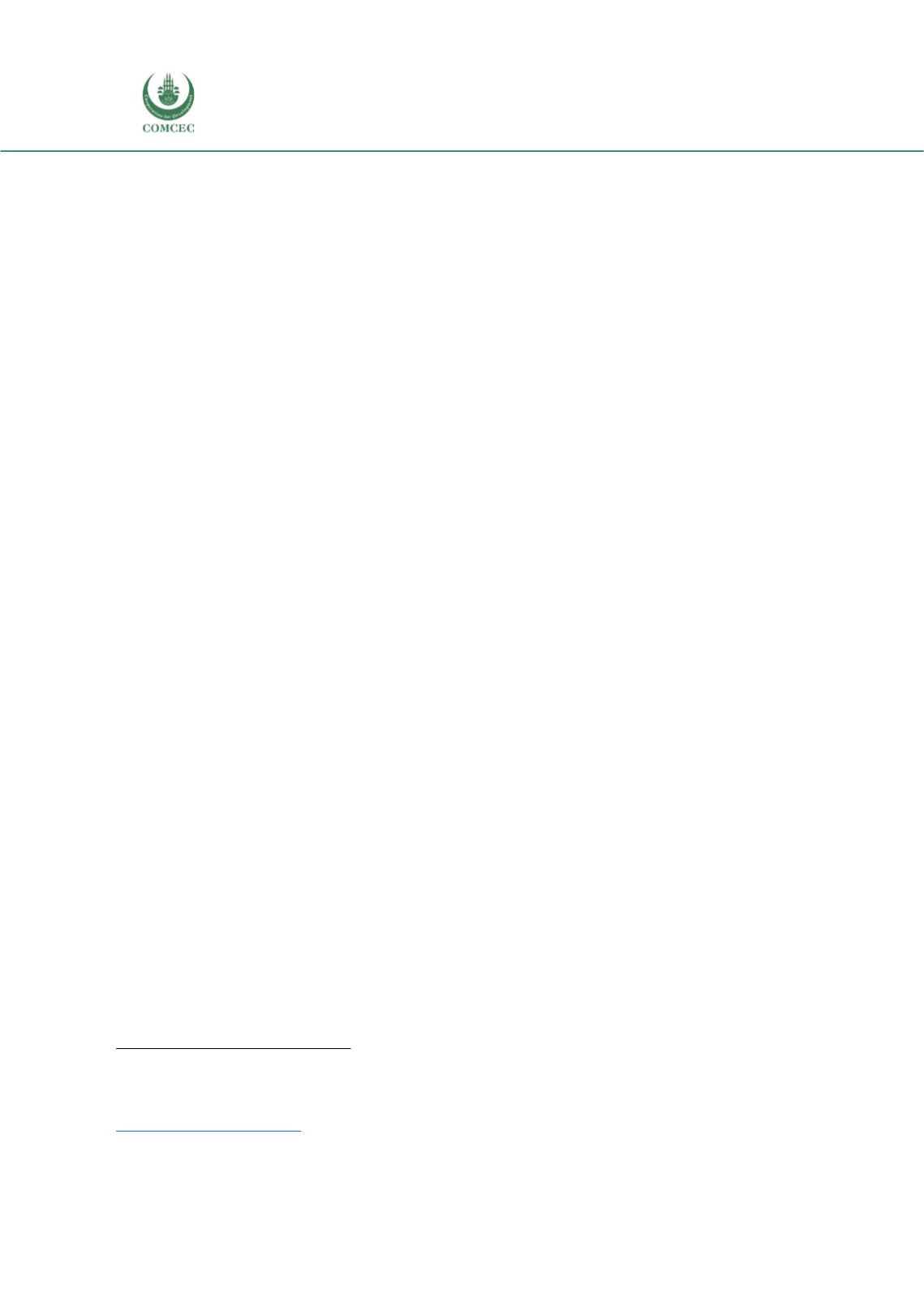

Analysis of Agri-Food Trade Structures
To Promote Agri-Food Trade Networks
In the Islamic Countries
74
Local and Regional Quality labelling scheme
Halal Certification
Bangladesh is actively working to explore and expand its export basket especially in developing
markets to take advantage of approximately 1.25 trillion USD worth market of the halal food
sector
24
. Halal certification is no longer just purely a religious issue, but is increasingly becoming
a global symbol for quality assurance and life style choice. At present, there is no mandatory
regulatory requirement of halal certification or labelling for importing agricultural or food and
beverage products. However, export of Bangladesh’s food and beverage items require halal
certification in most of the Muslim-majority countries. Halal certification has also developed as
a significant force in the Muslim-minority countries, where halal food has become a defining
element of Muslim identity. Currently in Bangladesh, one public (Islamic Foundation
Bangladesh) and one private (Halal Bangladesh Services Limited) organization issues Halal
certifications. The Islamic Foundation Bangladesh launched its Halal Diagnostic Laboratory in
Dhaka’s Agargaon on 4 August 2017, the first of its kind in the country, to test products for their
compliance with Islamic rules and regulations before giving them Halal certificates.
The OIC is the only global body working on developing a unified regulatory framework and a
sound mechanism for the halal market. The designated body under the OIC is the Standards and
Metrology Institute for the Islamic Countries (SMIIC), which currently has a membership of 35
countries. Various standards and metrology bodies in the Islamic world are actively
collaborating with SMIIC, such as ESMA and the Turkish Accreditation Agency, and several
standards have been developed and published. These include standards for food production,
certification bodies and accreditation bodies. The aim is to provide a unified framework in which
all the OIC member states all use the same standards and methodologies for certification,
accreditation and laboratory services. The framework follows the normative mainstream
structure and may culminate in the formation of an International Halal Accreditation Forum as
the overarching authority.
25
Bangladesh is yet to become a member of the SMIIC, which,
however, could have assist Bangladeshi meat exporters to overcome the market entry
requirements in the Saudi market, as well as, act as a driving force to enhance its exports of halal
food and beverages to other Muslim-majority countries.
Geographical Indications
Bangladesh enacted Geographical Indications (GIs) of goods (registration and protection) Act,
2013 to facilitate the protection of traditional products nationally and possibly abroad, if
Bangladeshi GIs could be registered in other countries. The 2016 National Industrial Policy has
also identified this as a key area for policy initiatives. Following adoption of the GIs Act, two
products namely,
Jamdani
and
Hilsha
received GI registration in August 2017.
However, the enactment of the 2013 GIs Act 2013 is merely the first step in a longer process of
recognition, commercialization, and management of Bangladeshi GIs and GI-denominated
products. In order to preserve the country’s cultural heritage and to protect traditional products
24
State of the Global Islamic Economy report 2017/18, commissioned by the Dubai government, and researched and written
by Thompson Reuters and DinarStandard valued the halal food and beverage market at 1.24 trillion USD in 2016. That
represents 18.2% of the total global food and beverage market, and estimated to reach 1.93 trillion USD by 2022.
25
For more details please visit the Standards and Metrology Institute for the Islamic Countries (SMIIC) webpage, available at:
https://www.smiic.org/en/smiic















